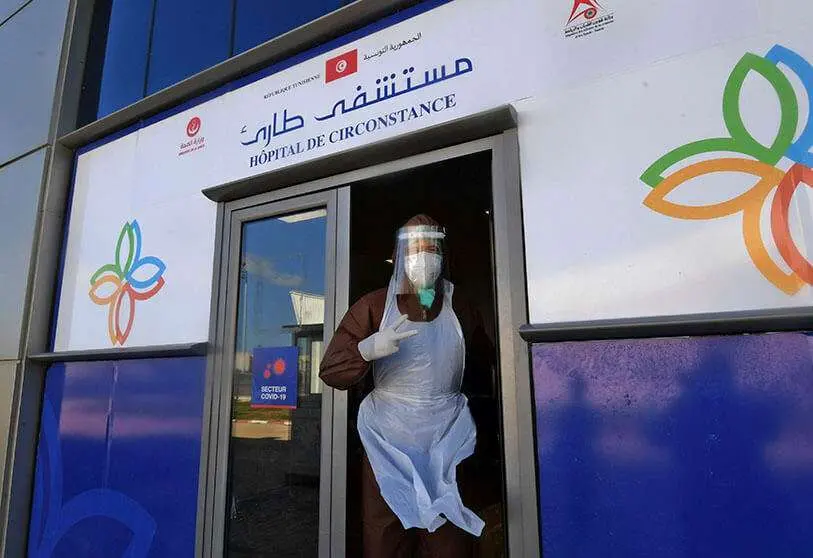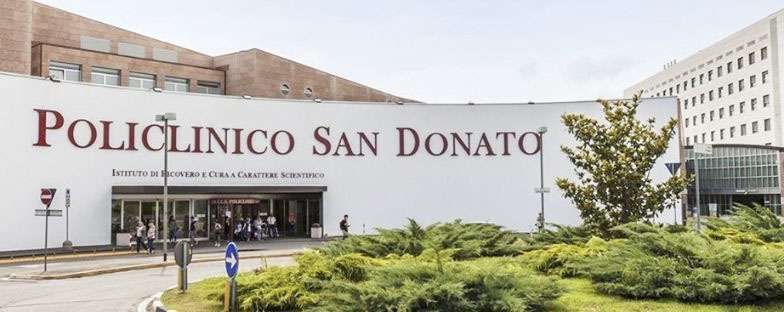The Mediterranean needs a Health Hub System

In the last 36 months, North European countries have made progress in building digital health hubs, while Mediterranean countries continue to lag behind and are unable to design a policy that all countries can agree on. With digital health tools, health hubs can become a reality. The emergence of health chatbots plays an important role in easing the burden on medical professionals. Moreover, vehicles can become diagnostic centres containing biometric sensors to detect a drop in blood sugar and other conditions like diabetes. UBER has identified this potential and aims to replace ambulances in the next decade. Countries around the Mediterranean need require a coalition to provide support, guidance, and innovation for the medical health workers, and as well as a partnership attitude to professional, independent excellence.
The Mediterranean needs to create a health coalition. Governments must take action in creating a regional hub, as after all, majority of migrants leave the region as a result of scarce job opportunities, security, and inadequate health care. I call on the disaffected to unite and fight for this cause. By building a health system with maternity clinics and hospitals of all specialties, based on the practice of knowledge sharing with benchmarks, there would be a significant improvement to healthcare system while simultaneously decreasing substantially unemployment rate.
Being only a few kilometers away, events in Tunisia, Algeria, and Libya have significant implications for Europe. 52-90 million people are fighting for democracy and economic prosperity, and if care is not taken, this could easily contribute to a prolonged outbreak of the COVID-19 virus. Libya is ill-equipped to treat the thousands of detainees held in overcrowded and unsanitary prisons, and thousands more unaccounted for are locked up in illegal detention centers. As the European Union struggles with the influx of migrants from Africa and the Middle East, negotiations remain deadlocked. According to a tweet, 2.4 million immigrants from non-EU-27 countries entered the EU-27 countries in 2018. This influx necessitates a fundamental improvement of the healthcare system in the Mediterranean. Ultimately, the limitations in the current system will negatively impact neighbouring nations, including those with excellent operational healthcare provisions that can easily be overwhelmed.
Shaken by economic instability, North African countries have struggled with balancing incremental investments in social services with maintaining healthy public finances. The economic recession has led governments to cut the real per capita budget for healthcare services. The burden of disease in the Mediterranean region is second only to the African region and is estimated at approximately 300 Disability-Adjusted Life Year (DALYs) per 1000 population. DALYs represents the total number of years lost to illness, disability. or premature deaths within a given population. Over 50% of the disease burden is due to non-communicable diseases. HIV/AIDs, malaria, and tuberculosis are mainly responsible for the burden of communicable diseases. In the Mediterranean region, the average vaccination coverage for children under 12 months is approximately 90%. The current state provides evidence of a fundamental need for improvement in health provisions in the Mediterranean region.
In Tunisia, for example, the healthcare system was kick-started by one of the country’s businessmen, Kamel Ghribi who is chairman of GK Investment Holdings. He recognised very early the opportunities offered by private investment in the healthcare sector. This led to the establishment of San Donato Group (GSD), an international private healthcare company, founded in 1957 to revolutionize healthcare by putting the patient at the centre of its ecosystem. It is one of Italy’s top private hospital groups, and where Ghribi is currently Vice President of GSD and president of GSD Healthcare Middle East. As part of its philanthropic commitment, GSD collaborates with Bambino Cardiopatici nel Mundo, a Milan-based NGO led by Dr. Alessandro Frigiola. Together, the two organisation work together worldwide to fight congenital heart conditions, especially in countries with poor healthcare systems. Since 1993, GSD and Bambini have carried out 59 mission and treated 837 patients in Tunisia, including 403 in GSD hospitals. Over the last decade, a network of Tunisian hospitals across the country, including Hopital Universitaire la Rabta in Tunis, Hopital Universitaire Sahloul in Sousse, and Hopital Universitaire de Sfax Hedi Chaker in Ghribi’s hometown Sfax, have sent requests for urgent assistance regarding cardiac patients. Moreover, Bambino worked with other NGO’s and the Tunisian authorities in 2009 to formalise the arrangements in a formal economic agreement, demonstrating that the lack of adequate health care has significant impact on the economical state of Tunisia, as well as other Mediterranean countries. In September 2020, a step was taken in the right direction with the establishment of a local training program focusing on pediatric and congenital heart defects at Rabta, Sahloul, and Hedi Chaker hospitals.

Progress in the healthcare industry could provide a significant boost to North Africa and the African continent. Morocco, Algeria, and Tunisia have managed in a short time to build a pharmaceutical industry that covers a large proportion of their national consumption. The Middle East and North Africa is the region that is earmarked for a rapid expansion of the pharmaceutical sector. According to research, the pharmaceutical market has reached $25B in 2018, with a short-term growth of 13% from 2017 to 2018, and this robust market is forecasted to grow to $60B by 2025 in the MENA región (MENA MUST NOT BE LEFT BEHIND; the theme at the Community Advisory Board, January 2021).
There is a correlation between humanitarian crises in a region and the health budget. The World Health Organization found that even in the post-war period, Iraq’s central government consistently spent far less per capita on health care than its much poorer neighbours. It allocated only 2.5% of the $106.5 billion national budget to the health ministry, while the security forces received 18% and the oil ministry 13.5%. (Reuters https://www.reuters.com/investigates/special-report/iraq-health/).
What if we were to join forces and provide care to the 90 million people in our Mediterranean region?

